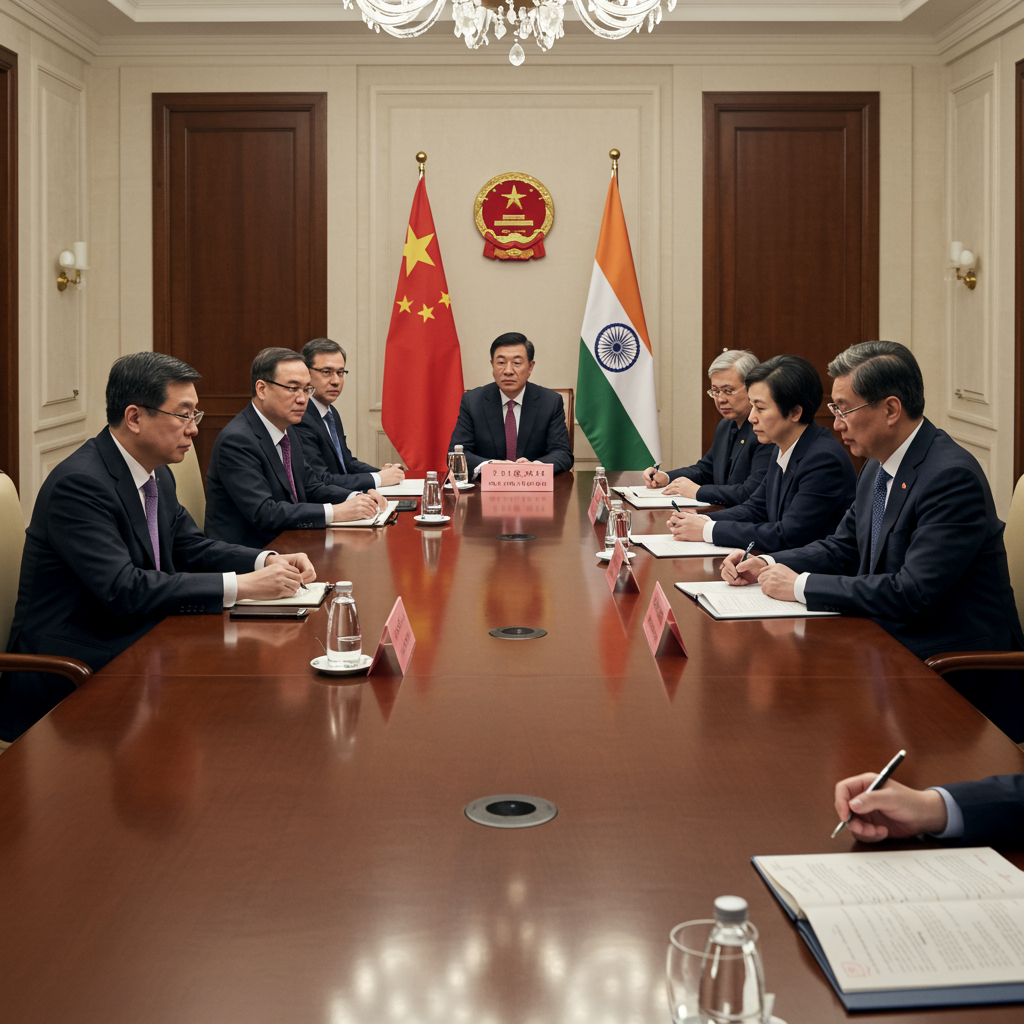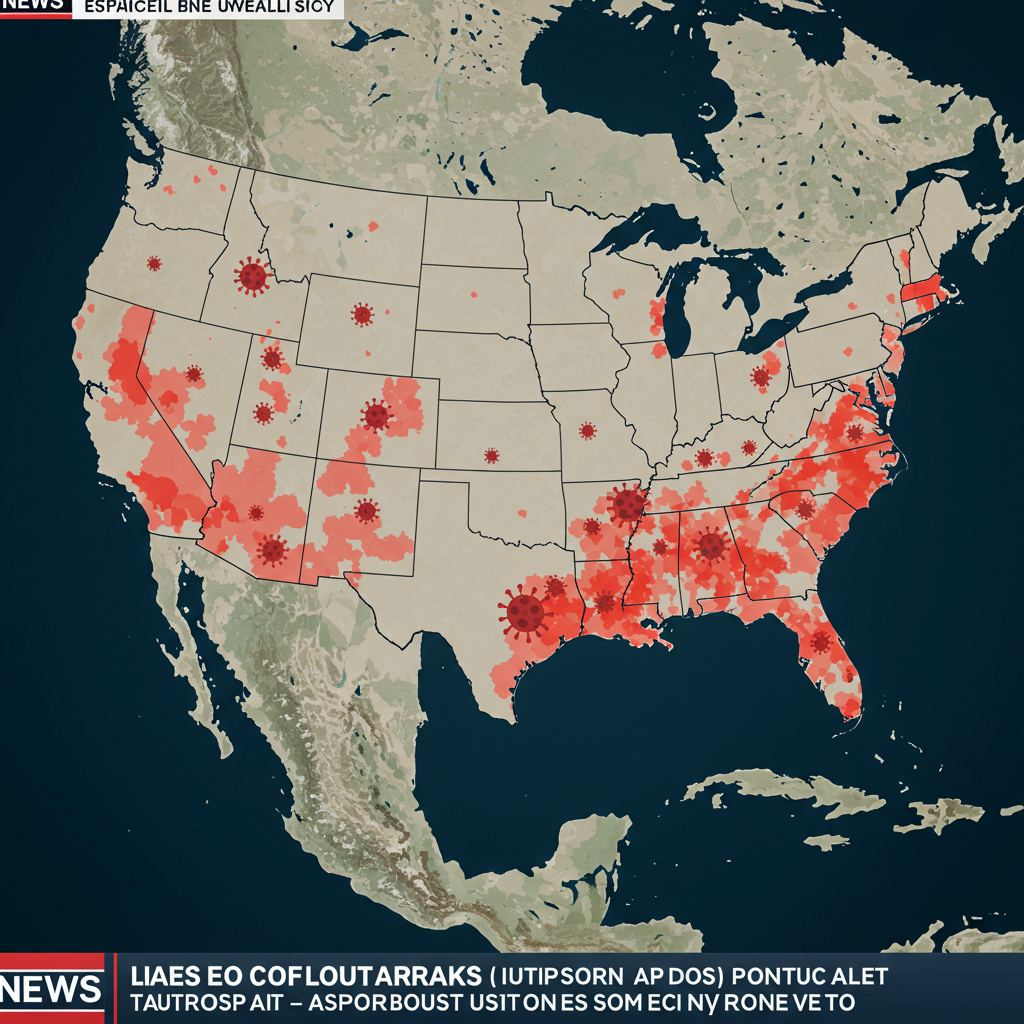A fresh diplomatic friction point has emerged between india and China, centered on the critical and politically charged issue of the dalai lama’s succession. Beijing has issued a stern warning to New Delhi, urging extreme caution and non-interference in matters it considers its internal affairs, specifically those concerning Tibet. This comes after recent remarks by a senior Indian minister regarding who holds the authority to decide the future reincarnation of the Tibetan spiritual leader. The unfolding row highlights the deep-seated tensions between the two Asian giants, particularly concerning the status of Tibet and the Tibetan exile community residing in India.
Diplomatic Tensions Escalate Over Dalai Lama Succession
China voiced strong objections on Friday to comments made by India’s Minority Affairs Minister, Kiren Rijiju. Minister Rijiju had stated that the decision regarding the Dalai Lama’s incarnation rests primarily with the spiritual leader himself and the established Tibetan Buddhist institutions. Beijing views such remarks as a direct intrusion into its sovereign territory and internal governance, specifically within what it refers to as Xizang (Tibet).
Speaking at a media briefing, Chinese Foreign Ministry spokesperson Mao Ning conveyed Beijing’s position unequivocally. She asserted that India must clearly understand the “anti-China separatist nature” of the 14th Dalai Lama. Furthermore, she insisted that New Delhi honor its long-standing commitments concerning Tibet-related issues. Mao Ning cautioned that India’s actions and statements on this sensitive topic could negatively affect the ongoing efforts to improve bilateral relations between the two nations.
Beijing’s Firm Stance: Control Over Reincarnation
Beijing maintains that the process for identifying the next Dalai Lama is not solely a religious matter but one requiring state oversight. Mao Ning reiterated China’s historical and legal basis for controlling the reincarnation process. According to China, the reincarnation of high-ranking Tibetan Buddhist figures, including the Dalai Lama and the Panchen Lama (the second most important figure), must comply with specific rigorous religious rituals and historical conventions.
China Cites History and Law
These conventions, as cited by China, include a domestic search process within Tibet, drawing lots from a ‘golden urn’, and crucially, receiving approval from the central government in Beijing. Mao Ning specifically mentioned that the current 14th Dalai Lama himself underwent this procedure and received approval from the then-central government before his recognition. Beijing’s stance is that any future reincarnation must adhere strictly to these principles, which it frames as being in line with religious rituals, historical conventions, Chinese law, and regulations. This insistence fundamentally clashes with the Tibetan Buddhist tradition’s emphasis on spiritual signs and the recognition process led by senior lamas and the Ganden Phodrang, the Dalai Lama’s institution. China’s assertion of control over religious succession is seen by many as a move to solidify its political grip over Tibet.
India’s Response: A Matter for Tibetan Buddhists
In contrast to China’s position, India views the succession of the Dalai Lama primarily through a religious and spiritual lens. Minister Kiren Rijiju’s remarks, made on Thursday, were significant as they marked the first public statement from a senior Indian government official on the Dalai Lama’s recent comments about his successor. Rijiju, who is a practicing Buddhist, was categorical in his assertion that the decision lies with the relevant Tibetan Buddhist institution and the current Dalai Lama himself.
Minister Rijiju Clarifies India’s Position
Rijiju emphasized that “no one else” but the established institution and the spiritual leader would decide on the incarnation. He, along with fellow Union Minister Rajiv Ranjan Singh, was slated to represent the Government of India at the Dalai Lama’s 90th birthday celebrations in Dharamshala. Rijiju clarified that their attendance at this event, scheduled for July 6, is strictly for a religious function. He explicitly stated that the celebration has “nothing to do with politics,” attempting to de-escalate any potential political interpretation of India’s participation. India hosts the Dalai Lama and a large Tibetan exile community, a fact that has long been a point of contention in Sino-Indian relations.
The Dalai Lama’s Own Succession Plan
The current dispute intensified following comments made by the 14th Dalai Lama himself on Wednesday. He stated clearly that the institution of the Dalai Lama would continue. Furthermore, he specified that only the Gaden Phodrang Trust would possess the authority to recognize his future reincarnation. This Trust was founded by his office in 2015. The Dalai Lama’s assertion directly challenges China’s claim that it holds the ultimate authority and must provide the “seal of approval” for any successor. This highlights the deep divide between the spiritual leader’s autonomous vision for the future of his lineage and Beijing’s determination to control it for political purposes.
Impact on Fragile India-China Relations
Mao Ning’s pointed reference to the potential “impact on the improvement and development of the China-India relationship” underscores the sensitivity of the Dalai Lama issue within the broader context of bilateral ties. Relations between India and China have been significantly strained for over four years following the military standoff in Eastern Ladakh.
Both countries have been making efforts towards normalizing ties after a period of frozen relations. These efforts saw some momentum following a meeting between Prime Minister Narendra Modi and Chinese President Xi Jinping on the sidelines of the BRICS Summit in Kazan, Russia, last year, followed by subsequent high-level diplomatic and military talks. The recent resumption of the Kailash and Mansarovar Yatra for Indian pilgrims is also seen as one of the initial steps taken by the two nations towards normalization. However, Beijing’s warning suggests that India’s stance on the Dalai Lama’s succession is perceived as a significant hurdle or potential setback to this normalization process. The issue remains a potent symbol of the distrust and geopolitical rivalry between India and China, intertwining spiritual matters with complex questions of sovereignty and regional influence.
Frequently Asked Questions
Why is China so concerned about the Dalai Lama’s successor?
China views the Dalai Lama not just as a religious figure but as a key symbol of Tibetan identity and potential opposition to Beijing’s rule over Tibet, which it calls Xizang. Controlling the selection of his successor allows the Chinese government to potentially install a figure loyal to Beijing, thereby consolidating its authority in Tibet and weakening the Tibetan exile movement led by the current Dalai Lama from India. Beijing cites historical conventions and Chinese law as justification for its required approval.
Who does the Dalai Lama say should decide his reincarnation?
The current 14th Dalai Lama has stated that the institution of the Dalai Lama will continue. He has specifically declared that only the Gaden Phodrang Trust, which was established by his office in 2015, will have the sole authority to recognize his future reincarnation. This position is in direct contrast to China’s insistence that its central government must approve the successor, often through a process involving a ‘golden urn’.
How does this disagreement affect India-China relations?
The issue of the Dalai Lama’s succession is a highly sensitive point that can impact bilateral relations. China’s foreign ministry warned India that its words and actions on Tibet-related issues, including the succession, could negatively affect the improvement and development of ties. This disagreement arises amidst ongoing efforts by both countries to normalize relations following the Eastern Ladakh border standoff, suggesting the Dalai Lama issue remains a potential flashpoint that could hinder progress.
Conclusion: Navigating a Sensitive Issue
The diplomatic exchange between India and China over the Dalai Lama’s succession plan underscores the complex and delicate nature of their relationship. While both nations have shown signs of attempting to de-escalate tensions and normalize ties after a prolonged period of friction, deeply entrenched issues like the status of Tibet and the Tibetan spiritual leadership remain significant flashpoints. India’s position, balancing its democratic values and hosting the Tibetan exile community with its strategic relationship with China, is often put to the test by Beijing’s assertions of sovereignty and demands for non-interference. How both countries navigate this particular “row” will be a crucial indicator of the future trajectory of India-China relations and the fate of the Dalai Lama’s lineage.




